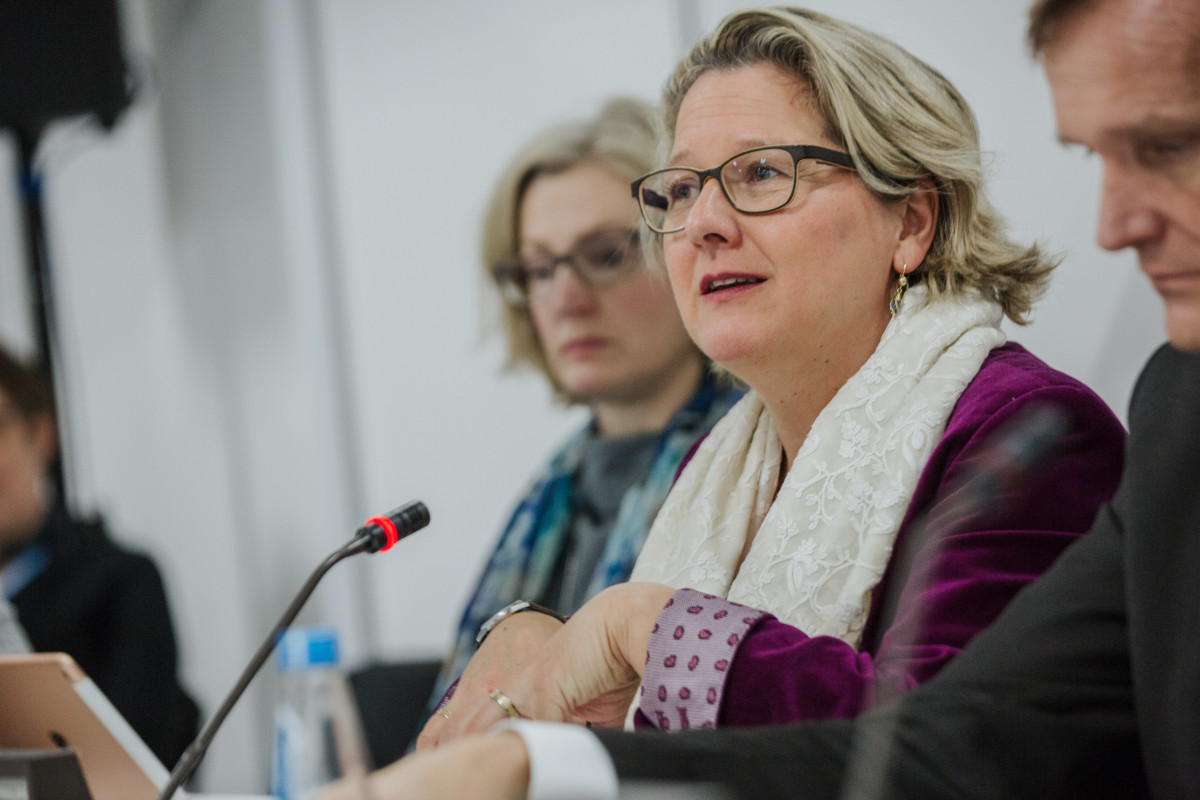Germany's coronavirus recovery plan should help build climate-neutral economy – env min
Clean Energy Wire / Der Spiegel / Zeit Online
Any stimulus programme the German government introduces amid the coronavirus crisis should “contribute to building a climate-neutral economy,” wrote environment minister Svenja Schulze in a message on Twitter. An economy based fully on renewable energy has to remain the focus, the Social Democrat told the weekly magazine Der Spiegel. “Of course, we will have to design economic stimulus packages in the aftermath of the coronavirus crisis in such a way that they help us to master future challenges facing our economy,” she told Der Spiegel.
Meanwhile, in a draft policy paper seen by Clean Energy Wire, energy policy think tank Agora Energiewende* has proposed a 100-billion-euro investment package to ensure the relaunch of the economy after the coronavirus pandemic in a way that supports the fulfilment of the country's energy and climate targets. "Now it's about saving lives. But in order to leave this crisis in a good way we have to start thinking big now and focus on the things that have fallen behind due to the coronavirus. This is especially true for climate change," said think tank director Patrick Graichen in a guest article for Zeit Online. He argued that a joint strategy is now needed for boosting both economic growth and climate action without one contradicting the other. This strategy should be bolstered by an investment of up to 100 billion euros across different sectors of the economy, the paper says.
"We propose bringing forward investments that would have been made in a couple of years without the coronavirus crisis," Graichen said. The money should, for example, be invested in decarbonising basic material industries, which form the foundation of construction activities and most infrastructure investments. It should also provide local utilities with an equity fund to boost climate-friendly investments locally, the paper says. The expansion of renewable energy sources ought to be accelerated across Europe and the EU should allow state subsidies for battery and hydrogen production. Graichen said the current economic relief packages introduced by many governments in response to the coronavirus crisis show that determined policymaking can be very effective, arguing that the same zeal is needed for the subsequent recovery stage. "If this phase is mastered with the same determination, the coronavirus crisis will not become a depression but instead an opportunity," Graichen wrote.
The economic crisis caused by the new coronavirus will sharply slow economic activity and the associated greenhouse gas emissions in Germany. Calls for a green stimulus package are gaining momentum, with European Commission president Ursula von der Leyen proposing a new “Marshall Plan,” arguing that the next EU budget must be a “strategic investment in our future” comprising, for example, clean energy, an intelligent circular economy and future-proof transport systems. Key German industry players have said they will stick to their climate commitments, reports Der Spiegel. “It would be wrong to do away with our CO₂ targets now,” HeidelbergCement told the magazine. “The climate crisis does not go away with the coronavirus epidemic.”
*Like the Clean Energy Wire, Agora Energiewende is a project funded by Stiftung Mercator and the European Climate Foundation.


